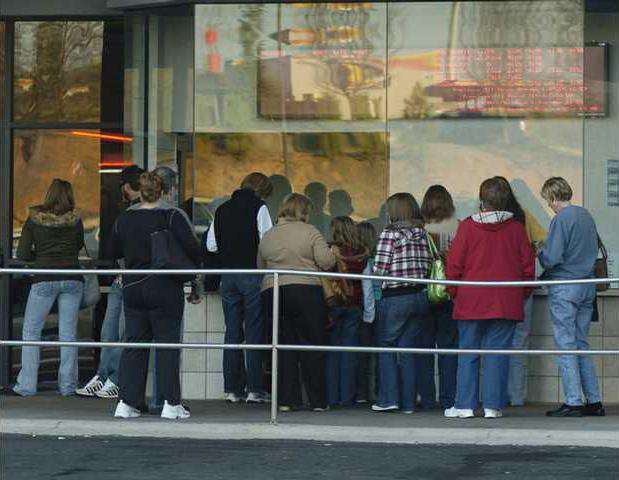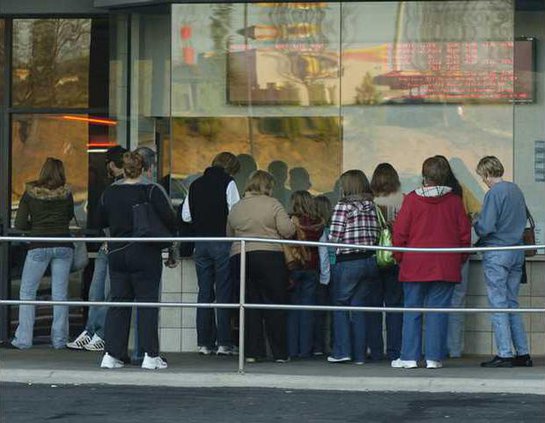At Vicky Bozeman’s pawn shop, business is good.
Construction workers bring in their unused power tools. Women hock their jewelry. Most customers pay the monthly fee to keep their belongings from being sold.
Since the recession set in, "we are definitely seeing an increase," Bozeman, owner of Islands Pawn and Tax Service, said. "It used to be people would pawn things for gas money. Now that people are getting laid off, they’re pawning just to get by."
Bozeman guesses her store’s income is 25 percent above pre-recession levels. That figure may yet go up, "but I hope it doesn’t," she said. "I hope it gets better for everybody."
Pawn shops are among a handful of businesses that either are unaffected or thrive in a down economy.
Jeff Humphries, director of the University of Georgia’s Selig Center for Economic Growth, said some types of businesses typically remain healthy in what he calls "deep recession":
Grocery stores. Supermarkets, whether it’s chains such as Publix, Ingles or Kroger or more locally based stores like J&J Foods, "tend to do fairly well in recessions — they’re one of the more stable retail sectors," Humphries said. "You’ve got to eat, right?"
In today’s economic climate, more people are "trading down" from restaurants, saving money by eating in, Humphries said. And in the supermarket, more consumers are trading down from brand-name products to store-brand, which means higher profit margins for stores.
Movie theaters. Folks still need recreation and entertainment, but they might forego that European vacation or tickets to a professional sporting event.
"The lower price-point entertainment options tend to hold up relatively well," Humphries said. "You’re going to probably find more of your entertainment at home or close to home, and you’re going to buy entertainment that is less expensive."
Patrick Corcoran, a spokesman for the National Association of Theater Owners, said movie theaters tend to do especially well during economic downturns, noting that in five of the last seven recession years, box office and admissions increased.
"People start cutting back on things when times get tough and look for things that are relatively affordable, and movie theaters, compared to other forms of entertainment, are still very affordable," Corcoran said.
Clinical health care. "You’re still going to go to the doctor for the basic emergency-type care, walk-up care or immunizations," Humphries said. "The health dollar will get spent, with the exception of the purely elective or cosmetic procedures."
However, as more people lose their jobs, some health care providers may have trouble collecting unpaid bills. And preventive care may be postponed by the uninsured.
Funeral services. The only sure thing in life is death and taxes, and people will continue to pay for burial or cremation. "There is a demand, but it may be at a lower price point," Humphries said.
Jessica Koth, a spokeswoman for the National Funeral Directors Association, said the industry is not immune to the recession.
"We are finding from our funeral homes that they are feeling the pinch just as other everyday Americans are," Koth said. Some casket manufacturers have increased fees and surcharges on what they sell to funeral homes, and many directors "have chosen to ride that out and not pass any of those extra expenses on to families," Koth said.
Businesses hardest-hit by recessions include restaurants catering to business clientele, home improvement stores, auto dealerships and any business reliant on tourism, Humphries said.
Location, not surprisingly, plays a role in how well a store weathers the financial storm. Businesses located near large concentrations of apartments do better because apartment occupancy rates are up as more people lose their homes.
Humphries believes hope is on the horizon. He predicts the economy will bottom out by the third quarter of this year, though the average person may not see signs of a turnaround until next year.
"Most people have never experienced anything like this in their lifetime," Humphries said. "We’re not quite in what you would call a depression, but we’re close."

